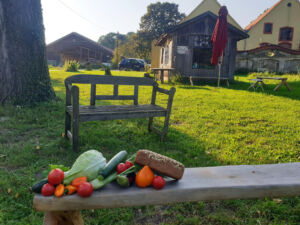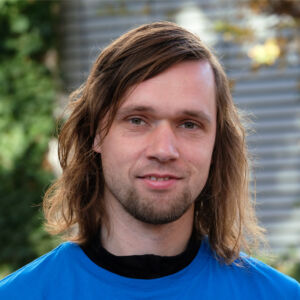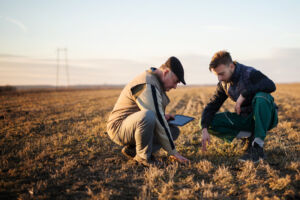In the face of many global transformations and crises, people need to experience self-efficacy and opportunities to shape their own lives in order not to give in to resignation. The municipal level offers special opportunities in this regard, which will be seized and expanded within the framework of the project. Against this backdrop, the city of Tecklenburg developed a municipal sustainability strategy in 2024 to implement the 2030 Agenda and the UN Sustainable Development Goals at the municipal level. In order to translate the contents of the strategy into concrete measures and changes, integrative processes must be established. The research project “Making the future appealing” is developing a real-world laboratory in which citizens and companies in the city of Tecklenburg can actively shape the future.
Research approach
The project has a modular structure: several so-called “building blocks for the future” address key areas of action in the municipal sustainability strategy. As a connecting conceptual element, the project team is developing the “Table of Utopias” approach – a transdisciplinary realm of experience where people come together to exchange ideas, learn together, and be inspired to actively shape the future. This approach for a transformative education goes far beyond the mere transfer of knowledge: the Table of Utopias brings the real-world laboratory to life as a place of learning and design – open to new perspectives, social dialogue, and practical experimentation. ISOE is actively supporting the conceptual and transdisciplinary development of this approach.
In addition, the institute is responsible for two specific building blocks for the future:
1. Impacts of the food system on planetary and human health
This building block analyzes the local food system from the perspective of consumers and producers. Based on scientific calculations of the impacts of municipal food systems on the environment and human health, future scenarios are developed together with stakeholders and evaluated in terms of their potential for change.
2. Socially just and inclusive design of energy supply in neighborhoods
In cooperation with the Climate Department of the City of Tecklenburg, ISOE is supporting the further development of an integrated energy concept for neighborhoods. A particular focus is on taking vulnerable population groups into account with the aim of developing socially equitable solutions for the energy transition at the municipal level.
Background
Change and transformation processes are affecting society at all levels. Municipal sustainability strategies can point the way to stimulating transformation processes toward greater sustainability at the municipal level. However, to ensure that these changes are truly sustainable and supported by citizens, participation formats are needed that go beyond simply informing and consulting citizens. Marginalized population groups in particular often find that their interests are given little consideration in political and social processes at the municipal level – at the same time, their active participation in change processes has been comparatively low to date.
Research and project partners
- Center of Interdisciplinary Sustainability Research (ZIN) at the University of Münster (lead)
Practical partners
- City of Tecklenburg
- Organic farm Wurzeln&Hörner at Haus Hülshoff, Tecklenburg
Funding
The project “Making the future appealing – Utopias for an inclusive implementation of the sustainability strategy in the Tecklenburg real-world laboratory” is funded by the German Federal Environmental Foundation (Deutsche Bundesstiftung Umwelt) as part of the funding initiative “Transformative Education for Sustainable Development”. ISOE is working on this project as a subcontractor to the University of Münster.


